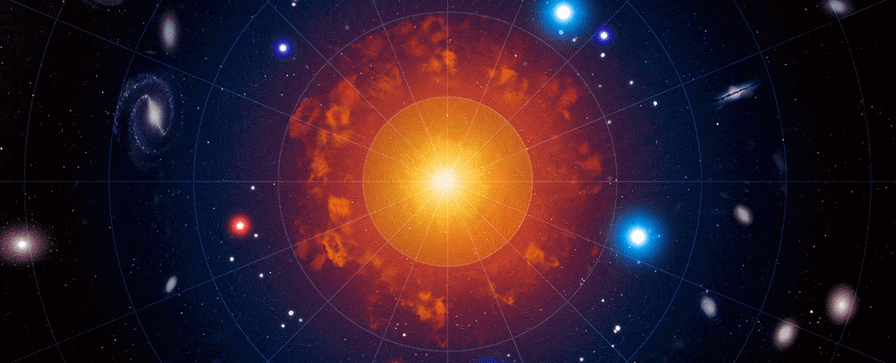Sound waves in the maps of galaxies across the Universe could be seen as signs of a Bigbang that took place 13 billion years earlier than current models suggest. Last year, theoretical physicist Rajendra Gupta from the University ofOttawa in Canada published a rather extraordinary proposal that the Universe's currently accepted age is a trick of the light, one that masks its truly ancient state while also ridding us of the need to explain hidden forces. Gupta's latest analysis shows that there were oscillations from the earliest moments in time. The age of the Universe was 26.7 billion years, and the study shows that the Universe does not need dark matter to exist. The Universe is said to be caused by dark energy but it is actually due to weakened nature as it expands. The emptiness of space stopped being empty about 13 billion years ago, with every piece of material in the Universe confined to a volume you could fit into your top pocket with room to spare. The Universe appeared to be mature for massive Cosmic objects not even a billion years out of the ovens, until measures of what are thought to be freshly-baked galaxies revealed it. Astronomers have a dilemma, either existing models on the evolution of the universe need to be adjusted or the universe has been around a long time. Current models assume that certain forces governing the interactions of particles have remained constant over time. It's hard for a novel hypothesis to survive the scrutiny of the scientific community. In the late 1920s, a Swiss physicist wondered if the reddened light of distant objects was a result of lost energy, like a marathon runner exhausted by a long journey across the eons of space. His tired light hypothesis was in competition with the now-accepted theory that light's red-shifted frequencies are due to the cumulative expansion of space. Gupta's version of the tired light hypothesis would affect the Universe's expansion by doing away with mysterious pushing forces of dark energy and blaming changing interactions between known particles for the increased stretching. Gupta would need to convince the cosmologists that his model does a better job of explaining what we see. His latest paper attempts to explain the fluctuations in the spread of visible matter across space caused by sound waves in a newborn Universe and the glow of ancient dawn known as the Cosmic Microwave Background. His analysis concludes that his tired light theory can play nicely with certain features of the Universe's residual echoes of light and sound, but only if we ditch the idea that dark matter is also a thing. It would make physics simpler if there was no need to explain the origins of dark matter or dark energy. Our Universe is still young, even if it has a few skeletons in its closet.
The universe is 27 billion years old according to the physicist.
ScienceThe universe is 27 billion years old according to the physicist.
Check out other categories:

